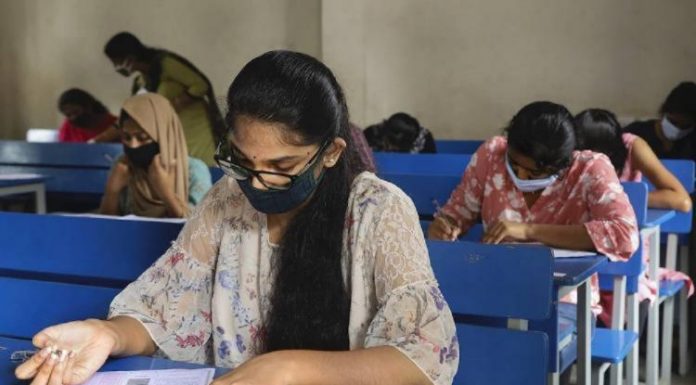
Lights out! Rajasthan is grappling with the worst blackouts in India, as revealed by a recent Global Competitiveness Index (GCI) report. These power outages are not just a minor inconvenience but a significant problem impacting the daily lives and economy of the state. In this article, we’ll delve into the causes, effects, and potential solutions to this pressing issue.
Understanding Blackouts
Definition of Blackouts
Blackouts are periods when electricity is unavailable in an area due to failures in the power system. These can range from brief interruptions to extended outages, affecting various sectors of society.
Common Causes of Blackouts
Common causes include infrastructure failures, natural disasters, high demand exceeding supply, and technical glitches. In Rajasthan, a combination of these factors contributes to the frequent blackouts.
The GCI Report
Introduction to the Global Competitiveness Index (GCI) Report
The GCI report, published annually, assesses the competitiveness of regions worldwide based on various factors, including infrastructure and energy stability. This year’s report highlights Rajasthan as facing the worst blackouts in India.
Key Findings Related to Rajasthan
The report points to inadequate infrastructure, high demand, and climatic conditions as primary reasons for the state’s poor performance in energy reliability.
Factors Contributing to Blackouts in Rajasthan
Inadequate Infrastructure
Rajasthan’s aging power infrastructure struggles to keep up with the growing demand, leading to frequent breakdowns and outages.
High Demand vs. Low Supply
The rapid growth in population and industrial activities has led to a surge in electricity demand, which the current supply cannot meet.
Weather Conditions
Extreme weather conditions, such as intense heat waves, increase the load on the power grid, exacerbating the problem.
Impact of Blackouts on Daily Life
Residential Areas
Residents face constant disruptions, with essential activities like cooking, cooling, and entertainment being severely affected.
Businesses and Industries
Frequent power cuts halt production lines, leading to significant financial losses and delays in meeting targets.
Healthcare Facilities
Hospitals and clinics struggle to provide continuous care, relying heavily on generators that are not always reliable.
Economic Consequences
Loss of Productivity
Businesses and industries experience decreased productivity, which directly impacts the state’s economic growth.
Impact on Local Businesses
Small businesses, in particular, face substantial challenges, with many unable to afford backup power solutions.
Long-Term Economic Effects
Prolonged blackouts deter investment and hinder economic development, potentially leading to long-term economic stagnation.
Government Response
Measures Taken by the Rajasthan Government
The state government has initiated several measures, including upgrading infrastructure, increasing power generation capacity, and promoting energy conservation.
Long-Term Strategies and Plans
Long-term plans involve investing in renewable energy sources, modernizing the power grid, and enhancing energy storage capabilities.
Technological Solutions
Modernizing the Power Grid
Upgrading the grid to handle higher loads and incorporate advanced technologies can reduce outages.
Renewable Energy Options
Investing in solar, wind, and other renewable energy sources can diversify the energy mix and provide more reliable power.
Smart Grid Technology
Implementing smart grid technology can help monitor and manage the distribution of electricity more efficiently, reducing the chances of blackouts.
Role of Public Awareness
Educating the Public About Energy Conservation
Public awareness campaigns can encourage energy-saving practices, reducing overall demand and easing the load on the power grid.
Community Initiatives
Community-based initiatives, such as local energy generation and conservation projects, can contribute significantly to reducing the strain on the power infrastructure.
Case Studies from Other Regions
How Other Regions in India Handle Blackouts
Learning from other regions that have successfully managed similar issues can provide valuable insights and strategies.
Successful Strategies and Lessons Learned
Case studies highlight the importance of investment in infrastructure, community engagement, and renewable energy adoption.
Impact on Education
Effect on Schools and Colleges
Frequent blackouts disrupt educational activities, affecting both students and teachers.
Online Education Challenges
The shift to online education has been particularly challenging, with unreliable power hampering access to digital learning resources.
Social Implications
Effect on Daily Routines
Daily routines are constantly disrupted, leading to frustration and decreased quality of life.
Psychological Impact on Residents
The stress and uncertainty caused by frequent blackouts can have significant psychological effects on the population.
Environmental Impact
Increased Use of Generators and Pollution
Reliance on diesel generators during blackouts increases pollution, contributing to environmental degradation.
Long-Term Environmental Consequences
If not addressed, the environmental impact of continuous blackouts could lead to long-term ecological harm.
Future Prospects
Predicted Trends in Energy Consumption
As energy demand continues to rise, the need for sustainable solutions becomes more critical.
Prospects for Reducing Blackouts
With appropriate measures, including technological advancements and renewable energy investments, the frequency of blackouts can be significantly reduced.
Conclusion
In conclusion, the rise in blackouts in Rajasthan is a complex issue with far-reaching implications. Addressing this problem requires a multifaceted approach, involving government action, technological innovation, public awareness, and community engagement. By taking these steps, Rajasthan can move towards a more stable and reliable power supply, improving the quality of life and economic prospects for its residents.
FAQs
What are the main causes of blackouts in Rajasthan?
The main causes include inadequate infrastructure, high demand exceeding supply, and extreme weather conditions.
How are blackouts affecting businesses in Rajasthan?
Businesses face significant productivity losses, financial challenges, and delays in meeting production targets due to frequent power cuts.
What steps is the government taking to resolve the issue?
The government is upgrading infrastructure, increasing power generation capacity, promoting renewable energy, and launching public awareness campaigns.
Can renewable energy help reduce blackouts?
Yes, investing in renewable energy sources can diversify the energy mix and provide more reliable power, reducing the frequency of blackouts.
How can residents cope with frequent blackouts?
Residents can cope by using energy-efficient appliances, installing backup power solutions, and participating in community-based energy conservation initiatives.
































